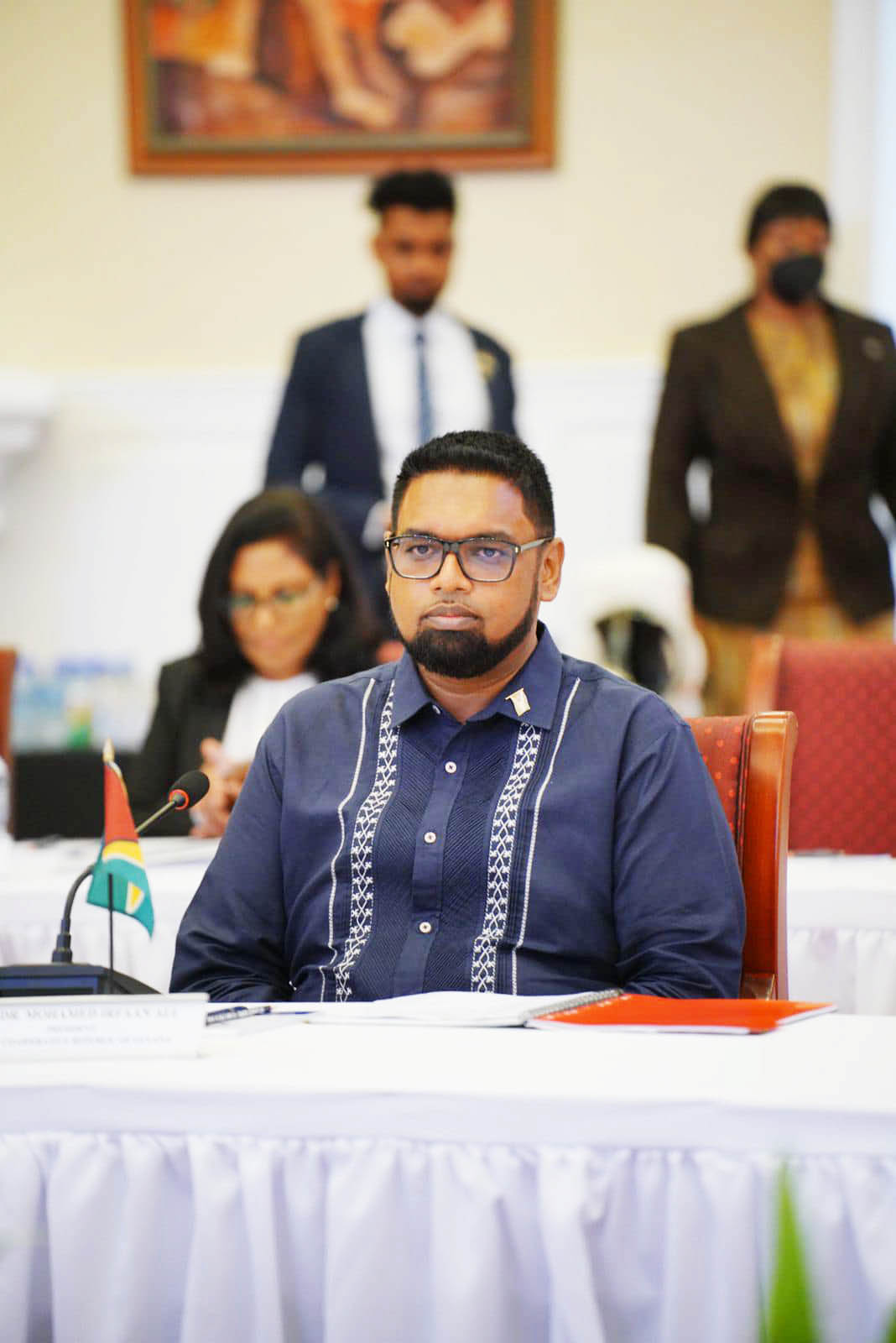President Irfaan Ali yesterday defended Guyana’s local content laws in Port of Spain and told the Trinidadian press that companies out of the Twin-Island Republic account for the largest number of regional investors in this country.
He made the statement while responding to questions about the ease of doing business in Guyana as well as the number of Trinidadian investors in Guyana.
“I do not seek to quantify individual investors from any country. I see investors from every country as equal as investors within Guyana and yes, if you look at it from a regional perspective, most of the investors from the region are from Trinidad and Tobago in Guyana,” Ali said.
He informed that they are primarily making investments in the construction and oil and gas sectors.
“There is active participation of investors from Trinidad and Tobago in the economy of Guyana and we welcome that. We have been encouraging investors from Trinidad and Tobago to partner with investors from Guyana because we want a win-win scenario. So I will say that there is significant investment and investors from Trinidad and Tobago in Guyana and that should not be an issue,” the President said.
President Ali is currently in Trinidad on a five-day state visit. He arrived in the country on Wednesday and held bilateral discussions with Prime Minister Keith Rowley. He will attend the opening of Trinidad’s Agri-Investment Forum today.
Addressing the ease of doing business, Ali said that “it all depends on who is looking at it and for what purpose you’re looking at the ease of doing business.” He admitted that some of Guyana’s systems are archaic but gave his commitment that government is addressing those inefficiencies.
“Now when it comes to improving the system, I’m with you. There are many areas that the system must be improved that we are working on to improve but in terms of specific difficulties from anyone in relation to developing a business I don’t see a problem,” he said.
He explained that government is also working on setting up a one-stop shop for investors so that the efficiency of doing business can be improved significantly.
“I’m very frank and transparent and open on this. We cannot continue to build a modern efficient country going through those layers [of archaic bureaucracy]. So we are now working on a programme to develop a single window approval system where you go to one window, you supply all your information [and] it is then transmitted electronically to all the agencies. There is a timeframe through which they must respond [and] if you don’t respond within a particular time it is taken as approval. That is a system we are developing.
“Now, there are others who might say that the ease of doing business is difficult because they are not getting through with a particular way they want to operate. That is a different scenario. Maybe for them ease of business is relaxing everything and to do what they please [but] for me that is not ease of doing business, that is not following the guidelines. So depends on who is seeking the clarification and for what purpose the clarification is sought. As far as I’m concerned, like the rest of CARICOM, our business environment or business platform and the opportunity to invest is as easy for anyone in the region as it is for Guyanese. It is the same laws, it is the same guidelines [and] it is the same rules,” Ali explained.
Certification
Recently, Trinidad-headquartered Ramps Logistics was denied its local content certification for failing to meet the outlined criteria. The company has since resubmitted its application to the Local Content Secretariat but is still waiting on word on whether it was approved or denied.
Ramps Logistics, which started operating in Guy-ana in 2013 won the contract to provide freight
forwarding and supply chain management services to ExxonMobil Guyana in 2018. It had responded to a public tender for the project. Under the existing contract the company facilitates logistics for vessels between Guyana and Trinidad, customs brokerage, clearing of equipment and cargo coming through local ports among other function.
With the contract up for renewal by the end of this year, they stand a chance of not being in a position to bid since they were initially denied their local content certification.
Ramps’ denial of local content certification attracted headlines in Trinidad and yesterday, Ali was asked about Guyana’s local content law and how it is intended to work. He explained that the legislation is in place to support every person while protecting the right of Guyanese to benefit from the sector as well.
“…all the local content legislation did was to do a minimal carve out for what capacity we have [a] very minimal carve out that is all it did. [It is] no different from anything else anyone would do. Now, it provides an opportunity for the transfer of technology and for the detail and technical skills that we don’t have at all. The scope is there and it’s been made use of by many companies out of Trinidad and Tobago and other places around the world.
“So again, it comes to how someone may want to interpret something for a specific outcome. Let’s not do that. Let us look at a policy in its totality and understand what the policy is seeking to achieve in its totality. You see, as a region, we don’t spend enough time on the analysis, the total analysis, we go for sound bites and in going for sound bites sometimes we miss the big picture. I don’t want us ever to miss the big picture,” he said.
There have been discussions here and further afield as to whether the local content law could possibly transgress the CARICOM-founding Treaty of Chaguaramas









